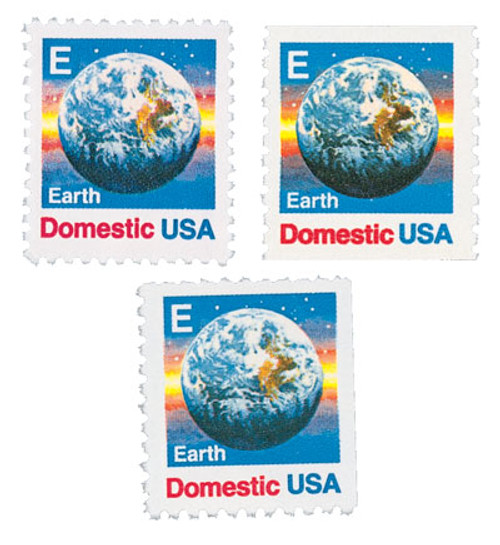
# 2282 FDC - 1988 25c E-rate Earth, booklet single
1987 25¢ “E” Stamp
Booklet
City: Washington, DC
Quantity: 1,674,260,000
Printed By: Bureau of Engraving and Printing
Printing Method: Photogravure
Perforations: 10
Color: Multicolored
Birth of George H.W. Bush
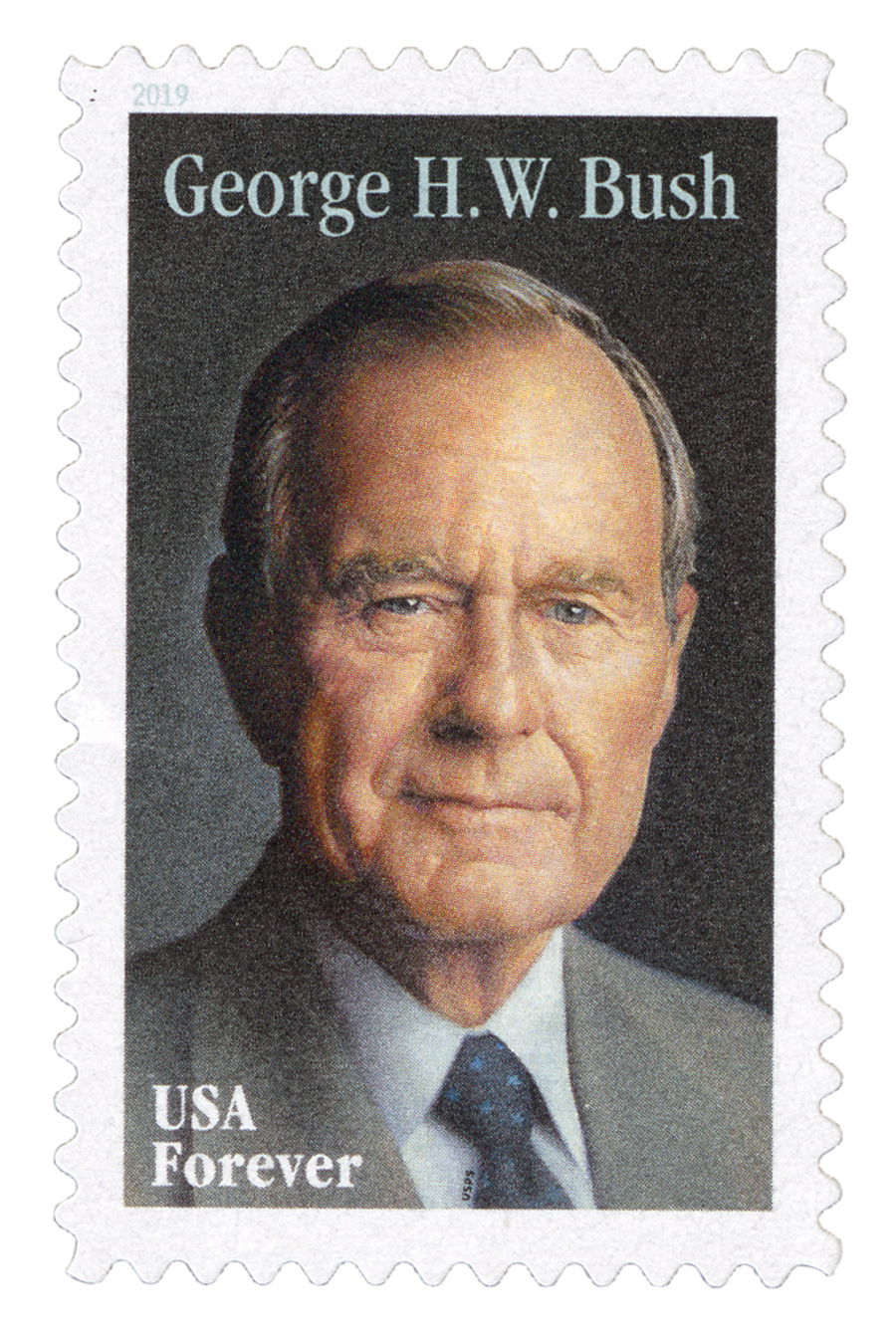
George Herbert Walker Bush was born on June 12, 1924, in Milton, Massachusetts. Bush grew up in Greenwich, Connecticut. When Japan attacked Pearl Harbor in December 1941, Bush was determined to join the Navy after graduation. He did so in 1942 and became an ensign aviator in the US Naval Reserve on June 9, 1943, three days before he turned 19, making him the youngest naval aviator at the time.
Bush was a member of Torpedo Squadron VT-51 and based on the USS San Jacinto. He and his squadron helped win the Battle of the Philippine Sea, one of the largest air battles of World War II. Bush was promoted to lieutenant (junior grade) on August 1, 1944, when the San Jacinto moved to the Bonin Islands to attack the Japanese. During that mission, Bush’s Grumman TBM Avenger was shot down by anti-aircraft fire. He spent several hours in the water before being rescued by lifeguard submarine USS Finback. Bush stayed aboard the sub for a month and helped rescue other downed pilots before returning to his ship.
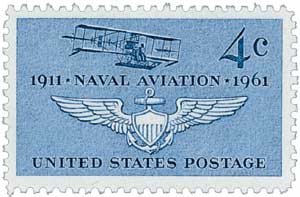
Bush was honorably discharged from the Navy in September 1945 and went to Yale University to study economics. After graduating in 1948, he moved to Texas where he worked with his father’s business associates and started an oil company (Bush-Overbey Oil Development) in 1951. The company experienced great success and Bush co-founded another (Zapata Petroleum) in 1953. He was named president of the company a year later and served in the role until 1966 before deciding to enter politics. By that time, Bush had become a millionaire.
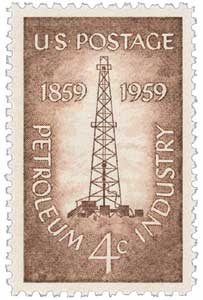
Bush was elected to the House of Representatives in 1966 as the first Republican in history to represent Houston. President Richard Nixon recognized Bush’s talents and appointed him ambassador to the United Nations, where he served from 1971 to 1973. When Gerald Ford became president, he made Bush chief of the US Liaison Office in the People’s Republic of China. He then served as Director of the Central Intelligence Agency (CIA) from January 1976 to January 1977.
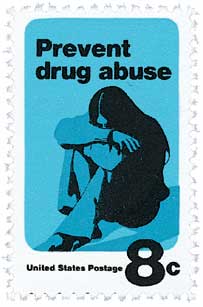
Bush ran for president in 1980 but lost the bid to Ronald Reagan, who then selected Bush as his running mate. Reagan gave Bush the responsibility of heading two task forces fighting the “War on Drugs.” Reagan and Bush won a landslide victory in the 1984 election. On July 13, 1985, Bush became the first vice president to become acting president. He held the post for around eight hours while President Reagan had colon surgery.
While running for president in 1988, Bush became famous for the phrase, “Read my lips: no new taxes.” His stance on the Pledge of Allegiance, prayer in schools, capital punishment, gun ownership, and abortion won Bush the presidency – the first vice president to be elected president since Van Buren in 1836. Bush signed several major laws into effect during his presidency, including the Americans with Disabilities Act of 1990 and the Civil Rights Act of 1991. He also implemented changes in US environmental law by enacting the Clean Air Act to help come up with means of power other than fossil fuels.
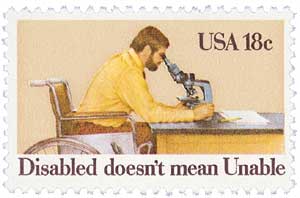
Though the US had supported Panama’s brutal military leader General Noriega, he had become a liability by the late 1980s. In 1989, the US supported a different candidate for president than Noriega had. When it appeared Noriega’s candidate would lose, he annulled the election and continued ruling by force. Bush then initiated Operation Just Cause and mobilized troops in Panama to remove Noriega from power and replace him with the winner of Panama’s earlier election. The operation lasted 42 days.
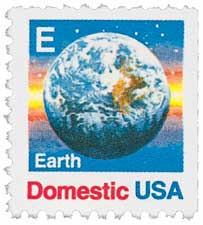
The Berlin Wall fell on November 9, 1989, less than a year after Bush took office, and the Cold War ended soon after. Bush handled the aftermath of the Cold War, meeting with Soviet leader Mikhail Gorbachev to reduce nuclear weapons in both the US and the USSR. The Soviet Union dissolved on December 31, 1991, and became 15 independent countries.
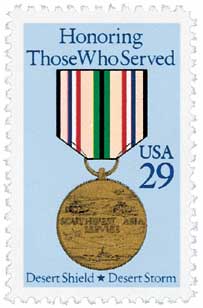
On August 2, 1990, Iraq invaded its neighbor Kuwait. At first, the US sent troops to Saudi Arabia strictly to defend their oil assets there (Operation Desert Shield). However, when Saddam Hussein did not obey the UN Security Council’s requirement to leave Kuwait by January 15, 1991, the Gulf War (Operation Desert Storm) began, and President Bush ordered an aerial bombardment of Iraq for 42 days and nights. Ground attacks began on February 15, and on February 27, Saddam Hussein ordered troops to retreat from Kuwait. While the president later received criticism for choosing not to remove Hussein from power while he had the chance, Bush’s approval ratings increased dramatically immediately after the Gulf War.

President Bush, along with Canadian Prime Minister Brian Mulroney, helped negotiate NAFTA. This treaty removed taxes on items traded between the United States, Canada, and Mexico. The agreement was drafted in the hope of increasing trade in North America. In 1990, Bush was named “Man of the Year” by Time and received the Navy’s Lone Sailor Award in 1991.

Despite his popularity at the end of the Gulf War, Bush ultimately lost his re-election bid in 1992. Bush and his wife, Barbara, moved back to Houston and built a retirement home in West Oaks. In 1993, Queen Elizabeth II named Bush an honorary knight, only the third president in history to receive the honor (Eisenhower and Reagan are the other two). The George H.W. Bush Presidential Library was opened in 1997, the same year the Houston International Airport changed its name to George Bush Intercontinental Airport. On January 20, 2001, Bush’s son, George W., became the president of the United States, making them the second father-son pair in history to both hold the office of president (the other being John Adams and John Quincy Adams).
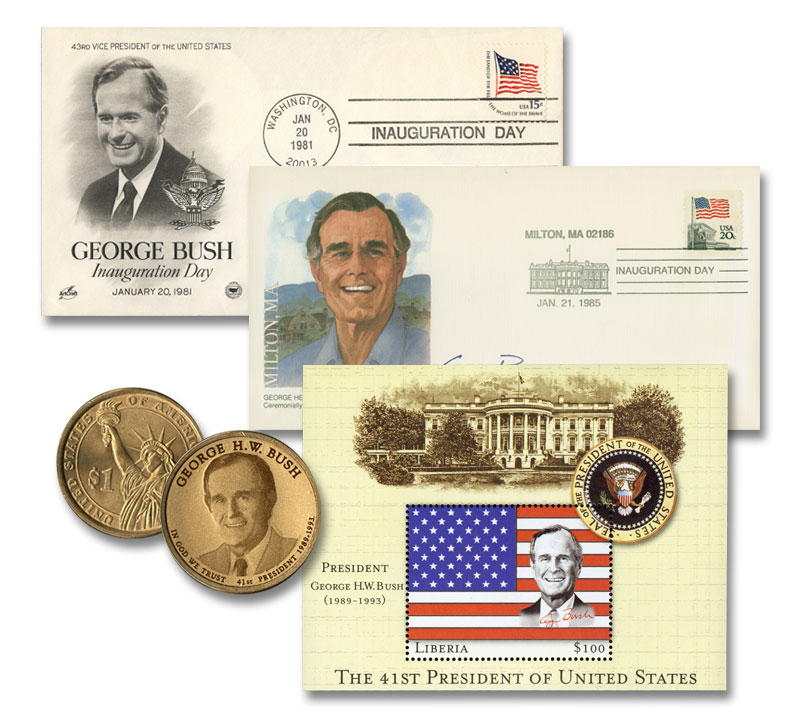
Bush also received the Ronald Regan Freedom Award in 2007 and the Presidential Medal of Freedom in 2011. He remained active in his later years – going skydiving on his 90th birthday. Bush died from Parkinson’s disease on November 30, 2018. He was the longest-lived US president at the time and the third-oldest vice president. He’s generally ranked in the top half of US presidents.
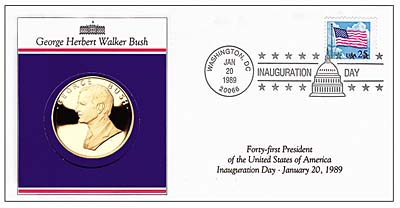
1987 25¢ “E” Stamp
Booklet
City: Washington, DC
Quantity: 1,674,260,000
Printed By: Bureau of Engraving and Printing
Printing Method: Photogravure
Perforations: 10
Color: Multicolored
Birth of George H.W. Bush

George Herbert Walker Bush was born on June 12, 1924, in Milton, Massachusetts. Bush grew up in Greenwich, Connecticut. When Japan attacked Pearl Harbor in December 1941, Bush was determined to join the Navy after graduation. He did so in 1942 and became an ensign aviator in the US Naval Reserve on June 9, 1943, three days before he turned 19, making him the youngest naval aviator at the time.
Bush was a member of Torpedo Squadron VT-51 and based on the USS San Jacinto. He and his squadron helped win the Battle of the Philippine Sea, one of the largest air battles of World War II. Bush was promoted to lieutenant (junior grade) on August 1, 1944, when the San Jacinto moved to the Bonin Islands to attack the Japanese. During that mission, Bush’s Grumman TBM Avenger was shot down by anti-aircraft fire. He spent several hours in the water before being rescued by lifeguard submarine USS Finback. Bush stayed aboard the sub for a month and helped rescue other downed pilots before returning to his ship.

Bush was honorably discharged from the Navy in September 1945 and went to Yale University to study economics. After graduating in 1948, he moved to Texas where he worked with his father’s business associates and started an oil company (Bush-Overbey Oil Development) in 1951. The company experienced great success and Bush co-founded another (Zapata Petroleum) in 1953. He was named president of the company a year later and served in the role until 1966 before deciding to enter politics. By that time, Bush had become a millionaire.

Bush was elected to the House of Representatives in 1966 as the first Republican in history to represent Houston. President Richard Nixon recognized Bush’s talents and appointed him ambassador to the United Nations, where he served from 1971 to 1973. When Gerald Ford became president, he made Bush chief of the US Liaison Office in the People’s Republic of China. He then served as Director of the Central Intelligence Agency (CIA) from January 1976 to January 1977.

Bush ran for president in 1980 but lost the bid to Ronald Reagan, who then selected Bush as his running mate. Reagan gave Bush the responsibility of heading two task forces fighting the “War on Drugs.” Reagan and Bush won a landslide victory in the 1984 election. On July 13, 1985, Bush became the first vice president to become acting president. He held the post for around eight hours while President Reagan had colon surgery.
While running for president in 1988, Bush became famous for the phrase, “Read my lips: no new taxes.” His stance on the Pledge of Allegiance, prayer in schools, capital punishment, gun ownership, and abortion won Bush the presidency – the first vice president to be elected president since Van Buren in 1836. Bush signed several major laws into effect during his presidency, including the Americans with Disabilities Act of 1990 and the Civil Rights Act of 1991. He also implemented changes in US environmental law by enacting the Clean Air Act to help come up with means of power other than fossil fuels.

Though the US had supported Panama’s brutal military leader General Noriega, he had become a liability by the late 1980s. In 1989, the US supported a different candidate for president than Noriega had. When it appeared Noriega’s candidate would lose, he annulled the election and continued ruling by force. Bush then initiated Operation Just Cause and mobilized troops in Panama to remove Noriega from power and replace him with the winner of Panama’s earlier election. The operation lasted 42 days.

The Berlin Wall fell on November 9, 1989, less than a year after Bush took office, and the Cold War ended soon after. Bush handled the aftermath of the Cold War, meeting with Soviet leader Mikhail Gorbachev to reduce nuclear weapons in both the US and the USSR. The Soviet Union dissolved on December 31, 1991, and became 15 independent countries.

On August 2, 1990, Iraq invaded its neighbor Kuwait. At first, the US sent troops to Saudi Arabia strictly to defend their oil assets there (Operation Desert Shield). However, when Saddam Hussein did not obey the UN Security Council’s requirement to leave Kuwait by January 15, 1991, the Gulf War (Operation Desert Storm) began, and President Bush ordered an aerial bombardment of Iraq for 42 days and nights. Ground attacks began on February 15, and on February 27, Saddam Hussein ordered troops to retreat from Kuwait. While the president later received criticism for choosing not to remove Hussein from power while he had the chance, Bush’s approval ratings increased dramatically immediately after the Gulf War.

President Bush, along with Canadian Prime Minister Brian Mulroney, helped negotiate NAFTA. This treaty removed taxes on items traded between the United States, Canada, and Mexico. The agreement was drafted in the hope of increasing trade in North America. In 1990, Bush was named “Man of the Year” by Time and received the Navy’s Lone Sailor Award in 1991.

Despite his popularity at the end of the Gulf War, Bush ultimately lost his re-election bid in 1992. Bush and his wife, Barbara, moved back to Houston and built a retirement home in West Oaks. In 1993, Queen Elizabeth II named Bush an honorary knight, only the third president in history to receive the honor (Eisenhower and Reagan are the other two). The George H.W. Bush Presidential Library was opened in 1997, the same year the Houston International Airport changed its name to George Bush Intercontinental Airport. On January 20, 2001, Bush’s son, George W., became the president of the United States, making them the second father-son pair in history to both hold the office of president (the other being John Adams and John Quincy Adams).

Bush also received the Ronald Regan Freedom Award in 2007 and the Presidential Medal of Freedom in 2011. He remained active in his later years – going skydiving on his 90th birthday. Bush died from Parkinson’s disease on November 30, 2018. He was the longest-lived US president at the time and the third-oldest vice president. He’s generally ranked in the top half of US presidents.







